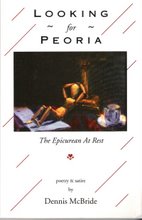Poor Pascal, the sheriff’s penis, is depressed and does not feel good about himself. Pascal has, in fact, a long history of mood swings and clinical depression. He is confused and sad. Because he does not understand law and order, the sheriff thinks Pascal is bad and keeps him in his small dark room. He is only let out for very short periods, and then only because he creates such an urgent fuss and as soon as he’s done, he’s thrown back into the dark dungeon. Sometimes Pascal tries to console himself by thinking of the similar fate of the fire engine, but it only makes him feel worse. The fire engine gets to rush down busy streets in public, where people point and stare with admiration and excitement, while Pascal is confined to solitary toilets, dark bedrooms, and back alleys.
How did it come to this? What went wrong? Pascal remembers long ago when the sheriff was young. He used to be taken out and played with regularly, and he thought the world was bright and wonderful, then the sheriff started going to church and it began to change. Oh, he was still taken out but not as often, and there was a loss of joy and a lack of vitality in the play. The former eager touch now became furtive and hurried; he was no longer valued and treasured but began to feel unwanted and ashamed. The sheriff began listening to the terrible things they said would happen if he let Pascal have his way. And so Pascal was accused, tried, and found guilty without the benefit of defense counsel, and left to carry out his solitary sentence.
Then came the fifties, with Mamie and Eisenhower, Arthur Godfrey, and Lawrence Welk. Everyone was wearing ‘I Like Ike’ buttons and pledging allegiance to the flag. The sheriff began watching ‘Dragnet’ on TV and following the Republican Party. It was dreadful. Pascal was hardly ever taken out, and when he was it was always for business, never pleasure.
Then came the sixties and the happy bird of hope perched in his soul. He heard delicious stories blowing in the wind about Woodstock and acid and lovely love-ins. The carnal had turned carnival and Pascal wanted to go, but the sheriff had just received his first bright badge and would not go.
Now the sheriff stays home evenings watching “The Fugitive” on TV. Poor Richard Kimball, a doctor, now escaped convict, is wrongly accused of killing his wife. The sheriff believes Dr. Kimball is guilty and his heart beats wildly each week as the police net closes in. But Pascal knows he is innocent. Poor Dr. Kimball, who deserves respect and receives humiliation,. He only wants to reveal his true self without penal confinement and punishment. Instead, he has to hide and give false names and motives to his actions, the way the sheriff does about Pascal after he’s introduced him to someone. He drags the stay out interminably with guilty small talk about love and meaningful relationships.
This is very distressing and embarrassing to Pascal since he has never been able to be anything other than honest and truthful with his simple vocabulary of Yes and No.
Yes, Pascal knows the pain of life without liberty and the pursuit of happiness, and he feels sorry for the doctor, who only wants to enhance pleasure and ease pain.
So the Sixties came and went and Pascal’s hope dimmed. If only he’d be let out to socialize more. Even brief visits are to his liking. He likes to travel and meet new people. But instead, it’s the same old pattern of disregard, and his depression deepens. Life has begun to seem like a busy, exciting intersection with a broken traffic light that will not let him enter. Only yellow and red works, caution and stop. There is no green.
Poor Pascal. How sad that the promise of puberty should lead to Prozac just because his environment failed to meet his needs when those needs were paramount. One’s important needs should be met in predictable and considerate ways. To be fed when hungry, to sleep when tired, to play when one is lively, and to get clean when wet and dirty. But Pascal is treated as if he hardly exists. He is kept awake when he wants to sleep, put down to sleep when he wants to play.
He has been picked up, held, fondled and placed here and there totally at the whim of others.
The world seems an incomprehensible and unpredictable place ruled by capricious giants.
Pascal is blamed for the world’s ills; sexually transmitted diseases, abortions, and broken marriages. He feels the shadow of judgment hanging over him like the sting of a criminal history.
It is like receiving an electric shock every time one sits down to dinner. The sacred family that he has helped to make now points its sanitary, pious finger at him. So when he finally does get to meet someone, it is never healthy sunshine play but gray, overcast and cloudy -- a low-fat, sugar-free, NutraSweet play.
Sometimes, when the sheriff steps out of the tub, he sits on the couch to watch television and
let himself drip dry. That’s how Pascal happened to see Madonna. He instantly recognized in her a kindred soul and tried to get closer to see, but he couldn’t get more than a couple inches closer.
The sheriff tried to help by pulling him up and closer, over and over. Pascal knows from the sheriff’s church experience that this is called masturbating. He thinks that is a mean and harsh word to call the wonderful imagination in the pursuit of pleasure.
Sometimes Pascal imagines all the sheriff’s church angels up there looking down on all the people masturbating in New Delhi and Zaire, Leningrad, Lower Manhattan and New England (New England is the best to imagine, especially in October with all the pretty leaves falling on the immaculate little towns). He thinks of how sweet and odd it must look to the angels, all those small faces busy building urgent little fantasies. Sometimes he wonders how many were doing it in Pompeii when Mount Vesuvius erupted and ended all their pleasure. This thought is very sad to him.
Pascal thinks about God sometimes and about what the sheriff read in the black leather Bible. He can’t understand why all the Bibles are such an unhappy color to begin with. He doesn’t think people have any business having spiritual experiences. From what he can see on television, there is enough disagreement and fighting about what people can see and touch without fishing for sky fish.
Pascal decided long ago that the God thing was too big for him. It is enough that there is soap and water, friendly bodies, nude beaches and electric blankets.
He wishes the sheriff could find someone nice to settle down with, someone like Madonna or Daryl Hannah. It doesn’t seem like an unreasonable request. It’s not like he is asking for Laura Dern or Sigourney Weaver.
Once the sheriff introduced Pascal to a nice woman he met in the personals. She was very friendly. She even kissed Pascal over and over until the current of electric joy flooded through him.
It felt like what the church people called being born again. Yes, she was different from some of the other women Pascal had met, the ones with hearts like crabs and arms like pincers. Sometimes Pascal feels completely misunderstood by women.
They don’t seem to know that it’s the face he makes love to, it’s the face that really moves him.
But Pascal is not ready to give up hope. He still believes in the hidden pleasure of life. He knows his dysfunctional ‘family of origin’ issues have been unkind to him, but he tells himself it could have been worse. He could have belonged to Kafka or Billy Graham, or even Jesus or Woody Allen. The sheriff isn’t all bad, either. He takes Pascal for rides in the police car, and sometimes he turns on the siren for him and spins the pretty colored lights above the car, a lovely erupting red and blue carousel. Then Pascal feels the old hope of excitement rise and he rises up and tries to see what the excitement is. Though he can’t get quite high enough, he tries, tries to see, tries to get a small peek out the window, just one. Maybe it’s a fire engine, he thinks. Maybe there’s a fire.
"Good taste is the death of art." Truman Capote

Check in at The Cirrhosis Motel with your host, freelance literary loiterer and epicure, Dennis McBride

photo by John Hogl
Monday, June 25, 2007
Subscribe to:
Post Comments (Atom)



No comments:
Post a Comment